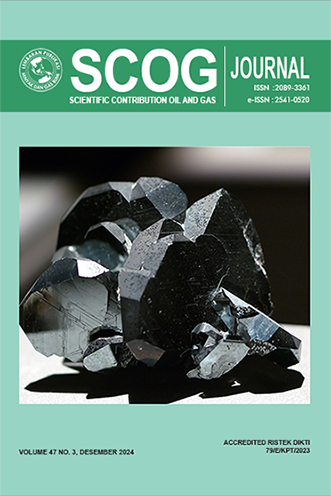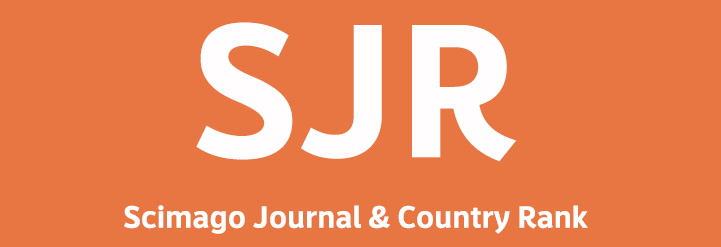Petroleum Fiscal Regimes Attractiveness in Indonesia, Malaysia and Thailand: Application on Offshore Project Development
DOI:
https://doi.org/10.29017/SCOG.47.3.1633Keywords:
rank attractiveness, composite score, offshore development, petroleum fiscal regime, production sharing contract.Abstract
Several factors are required to be considered in offshore and deepwater field development, including uncertainty in geological conditions, advanced technology, investment needed, fluctuating oil and gas prices, as well as fiscal regimes. Therefore, this study aimed to compare and evaluate the economic and fiscal regimes attractiveness ranks in Indonesia, Malaysia, and Thailand, applied to three cases of offshore oil and gas field development. The three offshore field cases included a new frontier gas field (Block A), a developed deep-water gas field (Block B), as well as a mature oil and gas field (Block C) with reserves of more than 100 mmboe and an investment range of 3 to 9 billion dollars. The discounted cash flow model was used to evaluate the contractor profitability, while government take, front loading index (FLI), and composite score (CS) were applied to rank the fiscal regime attractiveness. The result showed that profit split and ceiling of cost recovery affected fiscal attractiveness in government take. Front loading for contractor was observed at the early production phase from royalty and profit split. The fiscal attractiveness ranking generated a different order for each case, with Indonesia PSC CR being the most attractive to use in Block A due to the lowest FLI value. This PSC GS was the most attractive to use in Block B, providing the best economic results. Furthermore, concession scheme in Thailand was the most attractive to use in Block C, showing the best economic and the lowest FLI value. This showed that regardless of fiscal regime used in a country, parameter flexibility should accommodate uncertain conditionsReferences
Abidin, F. A. Z., 2015, 'Investment Crossroads: Malaysia versus Indonesia', Paper presented at SPE/IATMI Asia Pacific Oil & Gas Conference and Exhibition, Society of Petroleum Engineers, Nusa Dua, Indonesia, October 20–22.
Acheampong, T., 2020, 'On the Valuation of Natural Resources: Real Options Analysis of Marginal Oilfield-Development Projects Under Multiple Uncertainties'. SPE Prod & Oper. DOI: https://doi.org/10.2118/204232-PA.
Acheampong, T., Kemp, A.G., Phimister, E., Stephen, L., 2015, 'The economic dependencies of infrastructure assets in the UK continental shelf (UKCS)'. In: SPE Offshore Europe Conference and Exhibition. Soc. of Petroleum Eng. DOI: https://doi.org/10.2118/175445-MS.
Anjani B. R., & Baihaqi, I., 2018, 'Comparative analysis of financial Production Sharing Contract (PSC) cost recovery with PSC gross split: Case study in one of the contractor SKK Migas'. Journal of Administrative and Business Studies, 4(2), 65–80. DOI: https://doi.org/10.20474/jabs-4.2.2
Aprizal, M.F., Juanda, B., Ratnawati, A., Muin, A., 2022, 'Indonesian upstream oil and gas governance for sustainable innovation'. Jurnal Manajemen dan Organisasi, 13(1), 48-60
Blake, A.J., Roberts, M.C., 2006, 'Comparing Petroleum Fiscal Regime Under Price Uncertainty', Resources Policy. doi:10.1016/j.resourpol.2006.08.001
Bock, N., Rodriguez, L.R., 2011, 'A Comparison of Windfall Tax Methodologies in Different Fiscal Regimes', International Petroleum Technology Conference, IPTC-14897
Boykett, T, Peirano, M., Boria, S., Kelley, H., Schimana, E., Dekrout, A., and OReily, R., 2012, Oil Contracts: How to Read and Understand a Petroleum Contract. Version 1.1. Available online: http://www.eisourcebook.org/cms/January%202016/Oil%20Contratcs,%20How%20to%20Read%20and%20Understand%20them%202011.pdf (accessed 20 January 2023)
Dharmadji, T., Parlindungan, T., 2002, 'Fiscal Regimes Competitiveness of Oil and Gas Producing Countries in the Asia Pasific Region: Australia, China, India, Indonesia and Malaysia', Society of Petroleum Engineers , SPE-77912
Echundu, J.C., Iledare, O.O., Onwuka, E., 2015, 'Comparative Economic Performance Analysis of Production Sharing Contracts in Angola, Equatorial Guinea, Gaban, and Nigeria'. SPE Economics & Management, p.157-166.
Ferro, F., Tomasini, J., Gristo, P., Romeu, N, Blanquez, de Santa Ana, H., 2017, 'Uruguayan Petroleum Fiscal Regime', Society of Petroleum Engineers, SPE-185473-MS, doi: https://doi.org/10.2118/185473-MS
Gbonhinbor, J., Adebanjo, A., Oruene, A., Onyekonwu, M., Ikporo, B., 2016, 'Comparative Economic Analysis on Offshore and Land-Based Liquefaction Facilities in Nigeria'. Society of Petroleum Engineers, SPE-184366-MS
Gudmestad, Ove. T., Anatoly. B. Zolotukhin, and Erik. T.J., 2010, Petroleum Resources with Emphasis on Offshore Fields. Southampton: WIT Press
Hvozdyk, L, and Mercer-Blackman, V., 2010, What Determines Investment in the Oil Sector?: A New Era for National and International Oil Companies. Washington, DC: Inter-American Development Bank
Johnston, D., 2003, International exploration economics, risk, and contract analysis, Penn Well Books, Tulsa, OK.
Johnston, D., 2008, 'Changing fiscal landscape', J. of World Energy Law & Bus. 1-1. pp 31–54. DOI: 10.1093/jwelb/jwn006
Kravchenko, R., 2016, Six seas: Comparative application of investment attractiveness methodology to Arctic offshore petroleum provinces. NORD Universitet.
Lubiantara, B., 2012, Ekonomi Migas: Tinjauan Aspek Komersil Kontrak Migas, Gramedia, Jakarta.
Lucchesi, R. D., 2019, 'Impacts of Fiscal System in Oil Projects Valuation', Offshore Technology Conference, OTC-29568, doi: https://doi.org/10.4043/29568-MS
Luo, D., Na, Y., 2010, 'Assessment of Fiscal Terms of International Petroleum Contracts', Research Institute of Petroleum Exploration and Development, 37(6): 756–762.
Manaf, N. A. A., Saad, N., Ishak, Z., and Mas’ud, A., 2014, 'Effects of Fiscal Regime Changes on Investment Climate of Malaysia’s Marginal Oil Fields: Proposed Model', Procedia-Social and Behavioral Sciences 164: 55–61.
Mardiana, D. A., Fadhlia, Husla, R., Kartoatmodjo, R. S. T., 2019, 'Assessing Indonesia’s upstream petroleum fiscal regimes choices', International Journal of Scientific and Technology Research, 8(11), 2439–2444.
Mardiana, D. A., Burhanudinnur, Kartoatmodjo, R. S. T., 2020, 'Analysis of extensive use of variable split components on flexible gross split scheme', AIP Conference Proceedings, 2245. https://doi.org/10.1063/5.0010241
Mardiana, D. A., Saputra, H., 2022, 'Upstream Petroleum Economic Analysis under Low Price on Offshore Field Development', AIP Conference Proceedings, 2598, 030019: 1-9. DOI: https://doi.org/10.1063/5.0126092
Marques, L.M., 2015, 'The Fiscal System Influence on Oil Fields Development and Government', SPE Int. Student Pap. Contest SPE Annu. Tech. Conf. Exhib. Houst., SPE-178752-STU, doi: https://doi.org/10.2118/178752-STU.
Masud, A., Manaf, N.A.A., Saad, N., 2019, 'Modeling the Influence of Attractive Petroleum Fiscal Regime Dimensions on Marginal Fields’ Investment Climate in Malaysia', International Journal of Energy Economics and Policy, 9(4), 81-90
Nakhle, C., Lassourd, T., 2019, Assessing Tunisia’s Upstream Petroleum Fiscal Regime, Natural Resource Governance Institute.
Putrohari, R. D, Kasyanto, A., Suryanto, H., and Abdul-Rashid, I. M., 2007, 'PSC Term and Condition and Its Implementation in South East Asia Region', Paper presented at the Indonesian Petroleum Association 31st Annual Convention and Exhibition May 2007; Available online: http://archives.datapages. com/data/ipa_pdf/078/078001/pdfs/IPA07-BC-127.htm.
Pusayapaibul, P., 2015, Investigation of an efficient petroleum fiscal regime for Thailand, thesis, Chulalongkorn University
Rush, S., 2012, Access to infrastructure on the UKCS the past, the present and a future. Available [Online]. https://www.seanrush.co.nz/wp-content/uploads/Access-to-Infrastructure-on-the-UKCS-SR-Feb-2012.pdf. (Accessed 11 May 2022).
Sabaris, S.A., Nugrahanti, A., Mardiana, D.A., 2020, 'Comparative Analysis of Indonesia Gross Split PSC with Fiscal Terms of Several Southeast Asian Countries', Journal of Earth Energy Science, Engineering and Technology, Vol.3, No.3.
Salam, A. Y., Kemp. A., Phimister, E., 2021, 'Unlocking the economic viability of marginal UKCS discoveries: optimising cluster developments'. Energy Econ. 97, 105233. DOI: https://doi.org/10.1016/j.eneco.2021.105233
Sitompul, Y., 2015, 'Upstream Oil Industry Country Attractiveness Assessment by Integrating Potential Value and Risk', Society of Petroleum Engineers, SPE-176170-MS
Swe, W. T., & Emodi, N. V., 2018, 'Assessment of Upstream Petroleum Fiscal Regimes in Myanmar', Journal of Risk and Financial Management, 11(4), 85. https://doi.org/10.3390/jrfm11040085
Willigers, B.J., Prendergast, K., Muslumov, Z., 2010a, 'North Sea dominos: the economic dependencies of infrastructure assets and their user-fields', Soc. of Petroleum Eng. SPE-130156-PE, in Proceedings of the Hydrocarbon Economics and Evaluation Symposium Held in Dallas, Texas, USA, 8–9 March 2010. DOI: https://doi.org/10.2118/130156-MS
Willigers, B.J., Hausken, K., Bratvold, R., 2010b, 'Uncertainty and preferences in a joint E&P development program analyzed in a game-theoretic framework', J. Petrol. Sci. Eng. 74 (1–2). 88–98. DOI: https://doi.org/10.1016/j.petrol.2010.08.013
Willigers, B.J., Hausken, K., 2013, 'The strategic interaction between the government and international oil companies in the UK: an example of a country with dwindling hydrocarbon reserves', Energy Pol. 57, 276–286. DOI: 10.1016/j.enpol.2013.01.054
Downloads
Published
Issue
Section
License
Copyright (c) 2024 © Copyright by Authors. Published by LEMIGAS

This work is licensed under a Creative Commons Attribution 4.0 International License.
Authors are free to Share — copy and redistribute the material in any medium or format for any purpose, even commercially Adapt — remix, transform, and build upon the material for any purpose, even commercially.
The licensor cannot revoke these freedoms as long as you follow the license terms, under the following terms Attribution — You must give appropriate credit , provide a link to the license, and indicate if changes were made . You may do so in any reasonable manner, but not in any way that suggests the licensor endorses you or your use.
No additional restrictions — You may not apply legal terms or technological measures that legally restrict others from doing anything the license permits.














